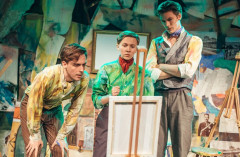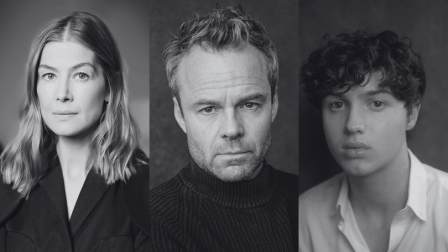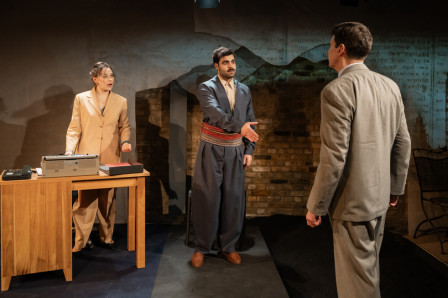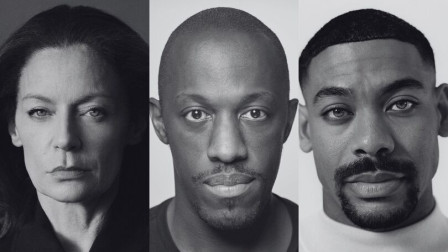Review: THE CAUSE at Jermyn Street Theatre
 I love the little quirks of history that define us as the product of chaos rather than some grand scheme, so I've long been fascinated by the almost farcical circumstances surrounding the assassination of the Archduke Ferdinand, the event that precipitated the bloody muddle of the First World War.
I love the little quirks of history that define us as the product of chaos rather than some grand scheme, so I've long been fascinated by the almost farcical circumstances surrounding the assassination of the Archduke Ferdinand, the event that precipitated the bloody muddle of the First World War.
Unbeknownst to each other two terrorist groups set out to assassinate him on that fateful day. One was organised by experienced Serbian militia but manned by incompetent students, the other incongruously consisted of young artists from Hungary. Although perhaps not that incongruously because a failed art student led the Nazi’s into the Second World War fighting allied forces led by an amateur painter.
The Serbians finally managed the assassination, despite a catalogue of stupid mistakes, stirring up the territorial animosities that resulted in the carnage of WW1. In his play THE CAUSE, currently on at the Jermyn Street Theatre, Jeremy James reasons that if the Hungarians had succeeded their pals the Austrians wouldn't have been so angry and war could have been avoided. He dramatises events leading up to the Arch Duke's murder, alternating between the two groups.
His previous experience as a writer has encompassed scripting training films during the 1960s. Presumably in these he had to convey a lot of information very quickly. He's retired now and I wish he'd stop. There's no need to have actors spout facts at such length or tell us what we should be concluding in heavy handed symbolism. Very much of the "don't show, tell" school of dramatists James has yet to grasp the fact that not everything you've researched needs to be jammed into the script. Sometimes a glance between characters can be as poignant as several pages of text. Historical context can be held in check on a need to know basis.
I'm at a loss as to why he wasn't persuaded to cut the superfluous framing devise of an old man talking to a psychiatrist about his disastrous romance during the assassination - almost the least interesting thing about the incident. As things stand we open with pages of wordy dialogue setting up who the old man is, followed by clunky flashback scenes in which characters discuss current affairs and culture to spoon feed the audience unnecessary historical context.
By the interval I was finding it all very tiresome and longing for the plot to take off.
Act two is a little better. I enjoyed the escalating chaos of the botched plans, conveyed in a series of increasingly fraught phone calls between the military types, contrasting with the naivety of the painters who come across like heroes from a kid’s adventure book.
The down side of this is that they’re about as complex and three dimensional as Enid Blyton’s FAMOUS FIVE. Maybe the handsome, floppy haired actors are at fault for not digging a little deeper. I didn’t care about any of the character's they played and I’m usually very well disposed towards handsome, floppy haired young men.
Just as we’re limping to the finish line, the old man comes back so we can have a moment in which the older and younger version of one of the artists can mourn the death of a comrade. I’d have thought the millions who died in the First World War might have been a more poignant choice for remembrance.
Three Stars for ambition but shouldn't a play about anarchist types feel more anarchic?
Latest News

 Legally Blonde the Musical - Rehearsal images released
21 January 2026 at 14:51
Legally Blonde the Musical - Rehearsal images released
21 January 2026 at 14:51

 Cast announced for West End transfer of Inter Alia starring Rosamund Pike
21 January 2026 at 13:59
Cast announced for West End transfer of Inter Alia starring Rosamund Pike
21 January 2026 at 13:59

 Safe Haven at Arcola Theatre Review
21 January 2026 at 10:47
Safe Haven at Arcola Theatre Review
21 January 2026 at 10:47

 Cast announced for One Flew Over The Cuckoo's Nest at The Old Vic
20 January 2026 at 14:29
Cast announced for One Flew Over The Cuckoo's Nest at The Old Vic
20 January 2026 at 14:29
